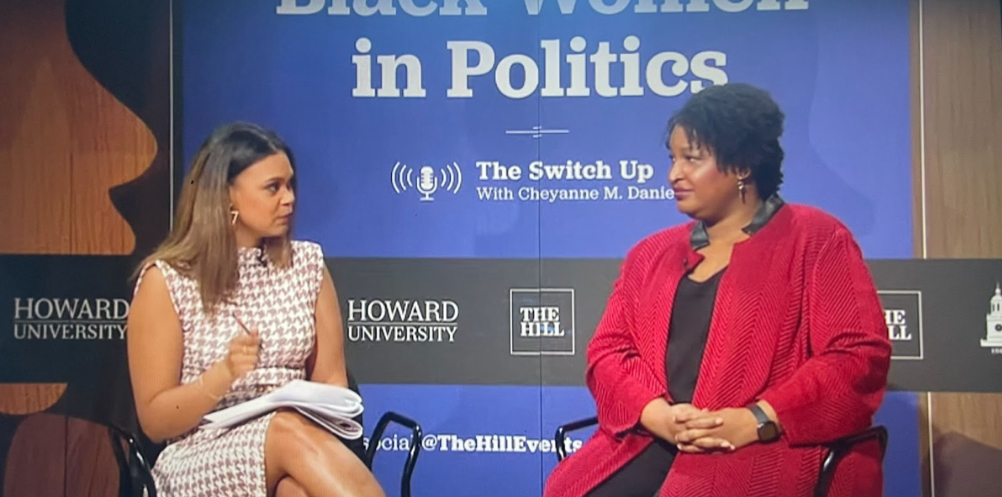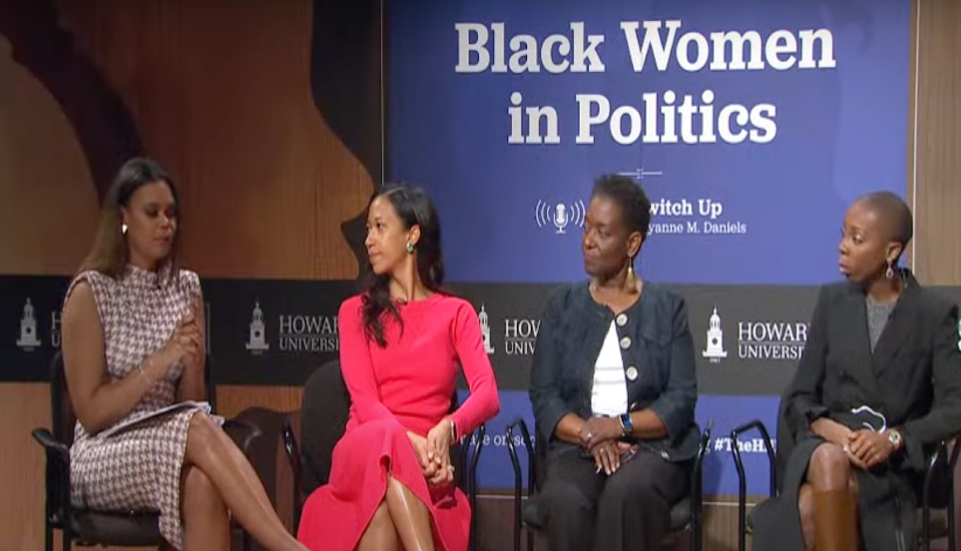By Aniya Greene
Howard University students, faculty and journalists gathered for The Hill’s Black Women in Politics event on Mar. 21 at WHUT-TV, the university’s public broadcast television station.
The political newspaper, The Hill, partnered with Howard University to bring together Black women currently serving in office and those who have formerly held office to share their experiences in politics.
Women of varied political affiliations spoke with moderator Cheyanne Daniels, a race and politics reporter at The Hill, about the power of the Black female vote, representation in politics, and the challenges Black women politicians face.
Among the speakers was Stacey Abrams, former Georgia House Minority Leader and current Ronald W. Walters Endowed Chair for Race and Black Politics at Howard University, made history in 2018 as the first Black woman gubernatorial candidate for a major party.
Despite the achievements that she and other Black women politicians have made, she says Black women are still not adequately represented in the current political world.
“Part of representation is power. It is not only having numbers. It is having the ability to turn those numbers into policymaking,” Abrams said. “[Black women politicians] should be so plentiful that we are accepted as the right thing to do.”
Abrams also expressed the importance of Black women as voters and contributors to change.
“Voting is about who is in the booth. It’s about how we demand access to our rights and responsibilities,” Abrams said. “And our responsibility as Black women in politics is to make progress work for everyone.”
From left to right: The Hill’s Cheyanne Daniels and guests Gabrielle Wyatt, Adrianne Shropshire and Roxy Ndebumadu take part in the event’s panel discussion. The women addressed the importance of Black women across all levels of politics. (Photo courtesy of The Hill)
Councilwoman Roxy Ndebumadu made history in 2019 when she became the first Black woman to represent Maryland’s District 4 and the youngest woman to serve as a Bowie City council member.
As a Republican representing a district that skews mostly Democratic, Ndebumadu said she has made efforts to amplify the needs of her community within the party.
“I can’t expect you to legislate an experience that you don’t understand, and you don’t have,” she said. “So I became that voice in the party and they embraced me.”
Ndebumadu’s mentee, Talynn Sharp, a student at Georgetown University, said she was inspired after hearing from the different Black women leaders.
“I don’t identify with [Ndebumadu’s] politics. I come from a family of Democrats, and I vote Democratic,” Sharp said. “But at the same time, it feels inspirational and almost full circle seeing how these Black women from both sides of the aisle have made positive change.”
For Sharp, she says this positive change has only furthered her desire to exercise her power as a voter.
“I understand disillusionment and wanting to disengage from political systems,” she said. “But, far too many people have risked their lives for me to not want to be involved. I want to use my right to vote to express to my government what I think and how I feel.”












